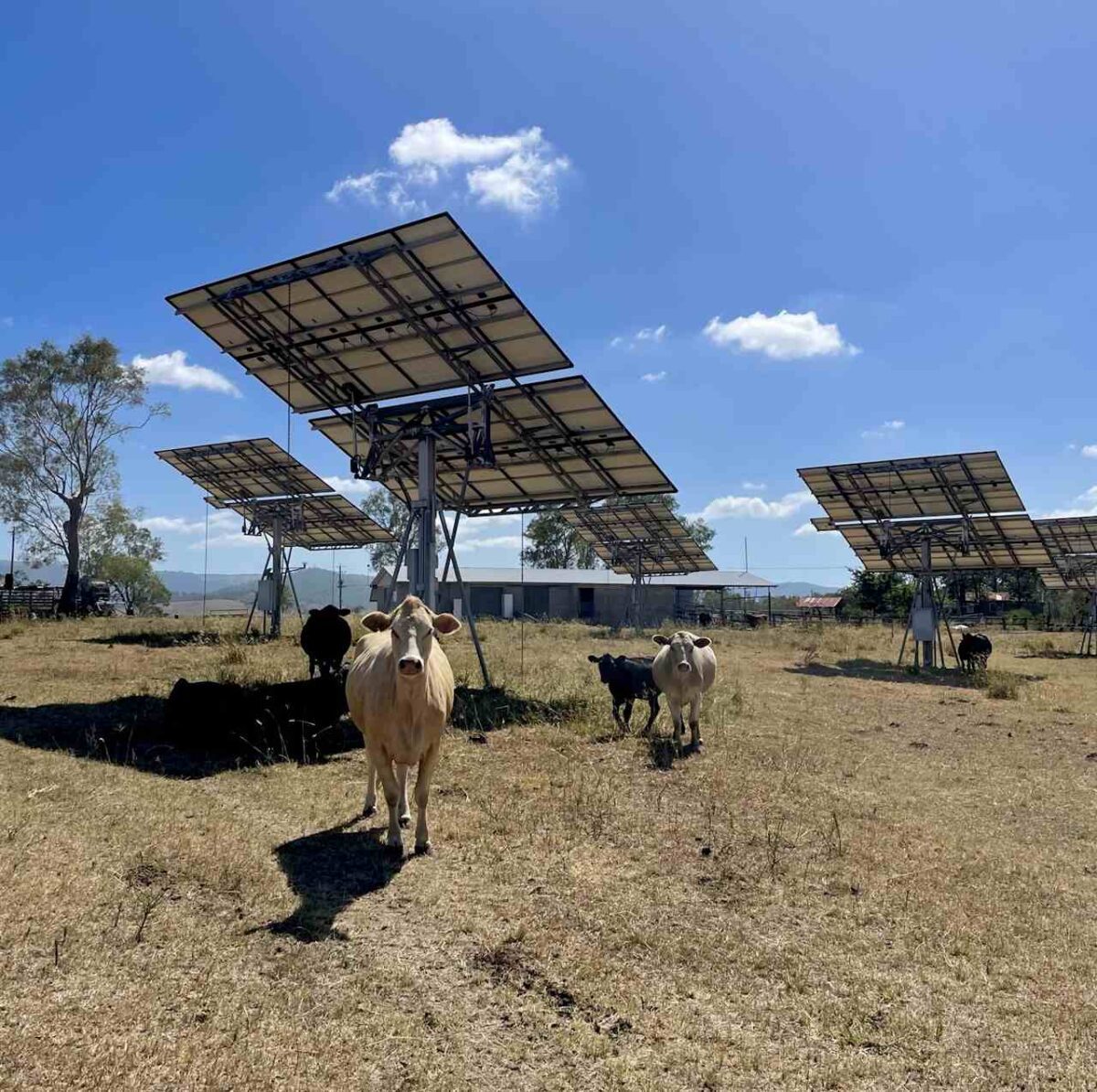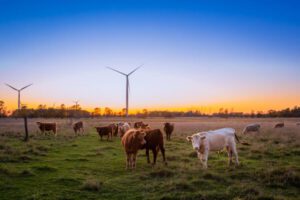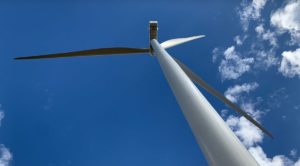The Forest Lodge cherry orchard bills itself as “likely the first zero fossil fuel, 100% electric commercial farm in the world”.
The farm in Central Otago, New Zealand, utilises a huge array of electric equipment, including frost-fighting fans, irrigation pumps, vehicles, all powered by a 23kW solar installation and 105kWh battery, as well as New Zealand’s renewable-heavy grid.
“Rather than being someone telling farmers what to do, we are showing them that we did it and what the numbers are,” says farmer Mike Casey, who founded the farm with his wife Rebecca, and who will be one of the keynote speaks at this year’s National Renewables in Agriculture Conference in Queensland.
The conference in Toowoomba will also hear from local beef producer Caitlin McConnel, about her experience grazing cattle under solar panels, and why it is critical that agriculture and renewables work together.
“Since 2010 my family have grazed beef cattle under solar trackers designed specifically to ensure continued livestock production whilst using the least amount of agricultural land,” says McConnel.
The National Renewables in Agriculture Conference was started in 2019 by NSW farmer Karin Stark, after she struggled to find ready information on alternatives to fossil fuels. It brings together farmers, agriculture and energy consultants, peak bodies, and government representatives to share stories of on-farm renewables and electric technology.
“With the intersection of agriculture and renewable energy becoming increasingly vital, the National Renewables in Agriculture Conference serves as a pivotal platform for industry stakeholders to collaborate, innovate, and chart the path towards a more sustainable future,” says Stark.
“We have farmers coming along who have continued to farm under solar panels, and it’s important that the learnings are shared with others to ensure the roll out of renewables compliments agriculture rather than replaces it.”
The conference also serves as an antidote to claims that renewable energy and agriculture cannot coexist, highlighting the economic, agricultural, and environmental benefits of combining renewables and farming.
For more information on the 2024 National Renewables in Agriculture Conference and ticket purchases, visit: https://renewablesinagconference.com.au








